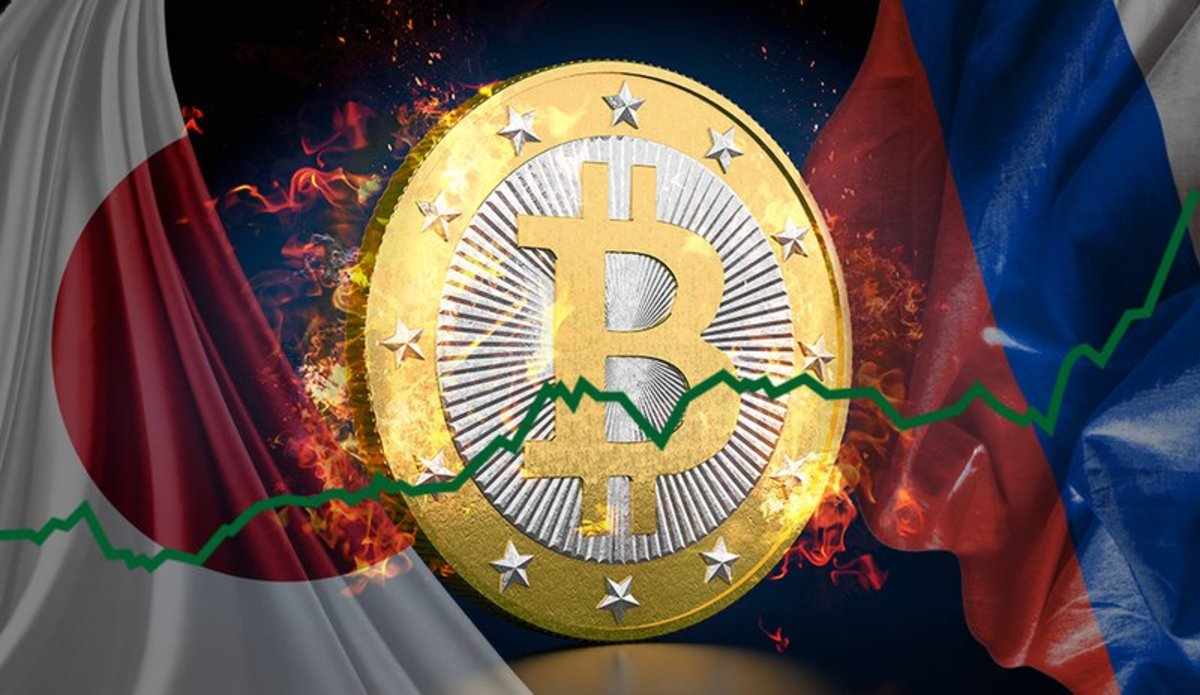
Since the beginning of April, the price of bitcoin has stabilized above the $1,000 mark and has started to push toward its recent all-time high of $1,263. The main drivers for this rally have been positive news out of Japan and Russia.
Since April 1, the price of bitcoin rallied from $1,070 to peak at this month’s high of $1,227 on April 11. At the time of writing, bitcoin is trading at around $1,218 according to BitcoinAverage. The market value of bitcoin has increased from around $17.5 billion on April 1 to surpass $19.5 billion on April 20, according to data compiled by CoinMarketCap.
Bitcoin Is Big in Japan
Japan officially recognized bitcoin as a legal payment method on April 1, which gave bitcoin an immediate price boost following the announcement. Not only can bitcoin now be legally used in Japan to make purchases and send remittances, but the digital currency is also exempt from sales tax.
Furthermore, following the legalization of bitcoin, two major retailers announced their intentions to offer bitcoin as a payment method in their stores. Retail giants Bic Camera and Recruit Lifestyle have both announced that they will trial bitcoin payments in anticipation of a possible increase in the use of bitcoin for consumer purchases. As Recruit Lifestyle uses the point-of-sale app AirREGI, which enables merchants to accept bitcoin payments, there is the potential that over a quarter of a million Japanese retailers may soon accept bitcoin payments before the end of the year.
Given that Japan has become a trading hub for bitcoin, the positive news coming out of the country not only boosted local demand but also increased bitcoin buying globally. Traders are likely to be optimistic since its new legitimate status could give the price of bitcoin a substantial boost driven by real demand in the coming months.
Russia Is Changing Its Stance Toward Bitcoin
Russia has been a tricky jurisdiction for bitcoin users and startups, as Russia’s central bank, the Bank of Russia, effectively banned the use of digital currencies in 2014 for fear it would undermine the Russian ruble, which was struggling at the time.
The bitcoin ban resulted in bitcoin websites being shut down and led to several lawmakers speaking out against the use of digital currencies in Russia, suggesting that they are a vehicle for money laundering and terrorist financing and that they “cannot be used by individuals or legal entities,” according to the Russian Prosecutor General’s Office.
However, at the end of 2016, the sentiment toward bitcoin in Russia started to change. The Russian Federal Tax Service issued a letter in October 2016 that stated that under Russian law digital currencies are not illegal and that there are no prohibitions for citizens or companies when it comes to dealing with them. While this letter was a clear change in sentiment by Russian authorities, it gave no clear indication of how digital currencies will be regulated in Russia.
Last week, however, Russia’s Deputy Finance Minister Alexey Moiseev told Bloomberg in an interview that the Russian central bank and the government are working on a joint position that could see digital currencies such as bitcoin become recognized as a legal payment method as soon as 2018. Meanwhile, his counterpart at the Russian central bank, Deputy Governor Olga Skorobogatova, stated in February that the authorities intend to decide by mid-2017 whether digital currencies should be considered as cash, an asset or a security.
Russia’s change in sentiment toward bitcoin has helped to boost the currency’s price and will likely increase its demand in the world’s 11th largest economy, which could potentially push the price of bitcoin to new highs in the months to come.










